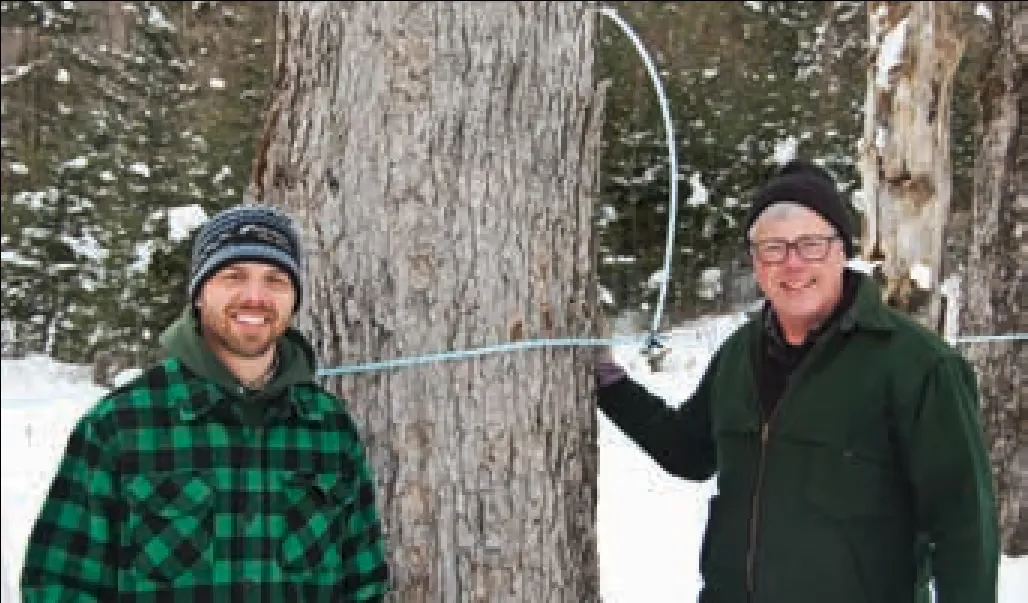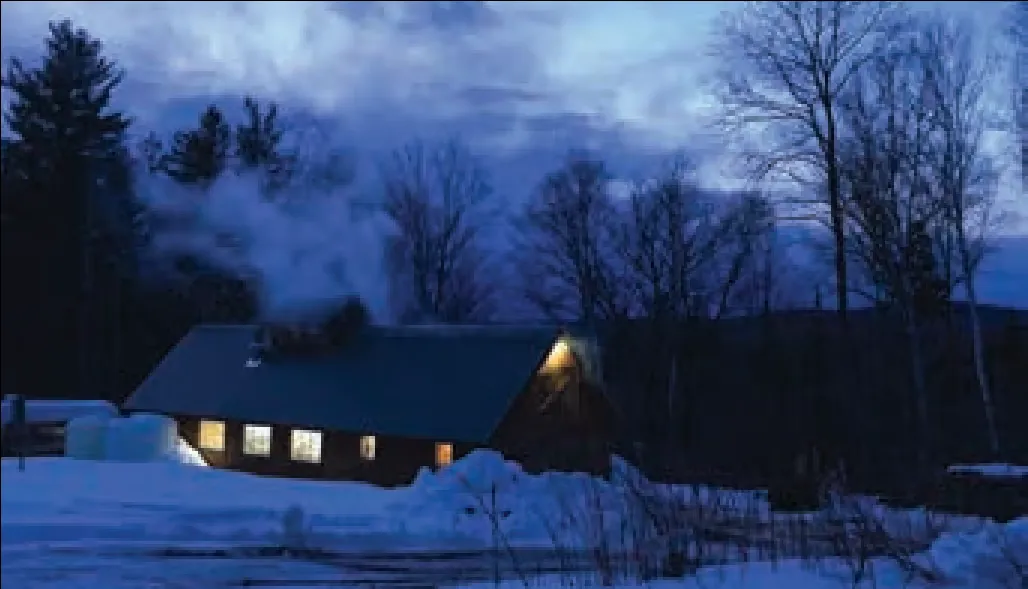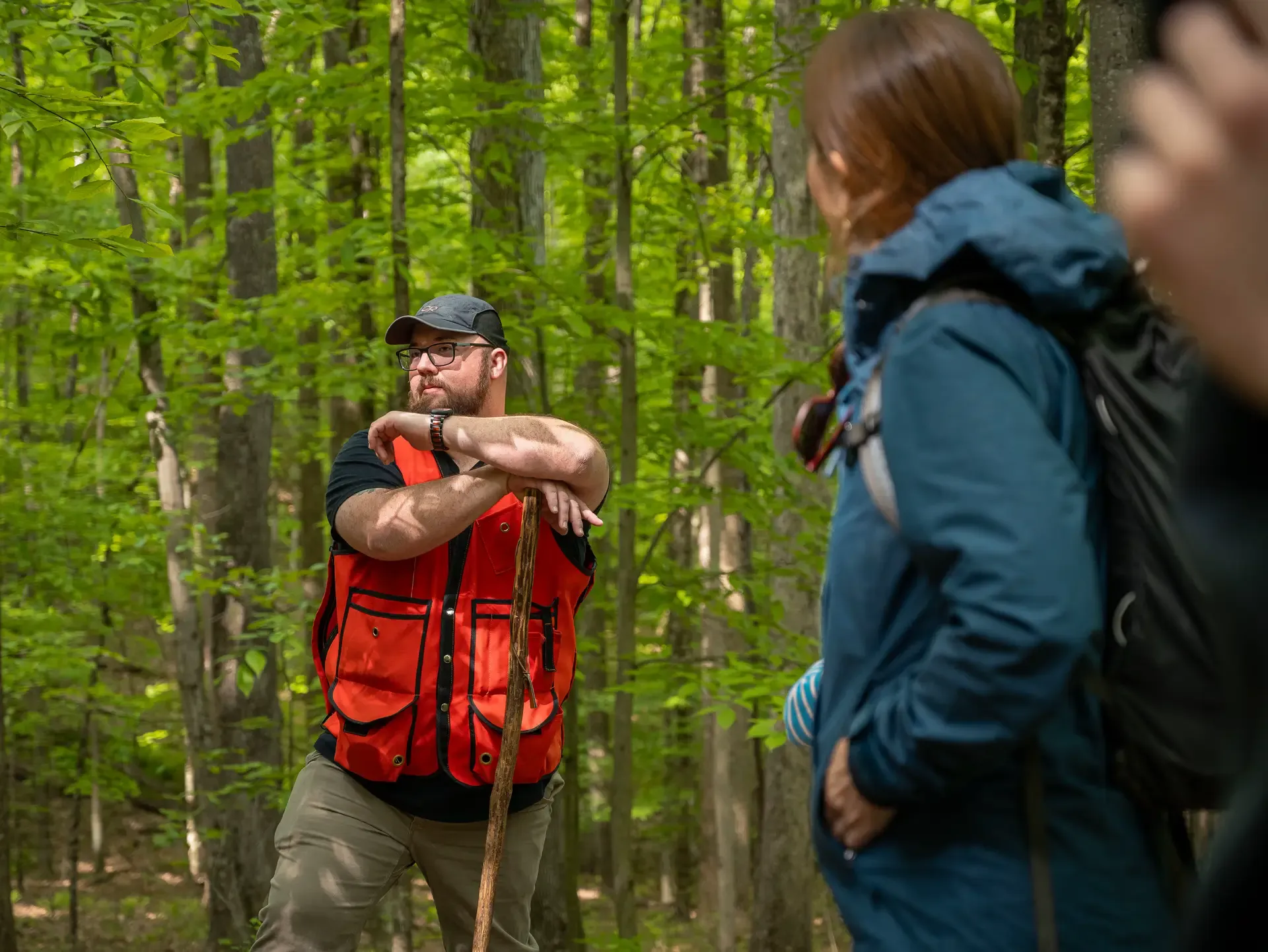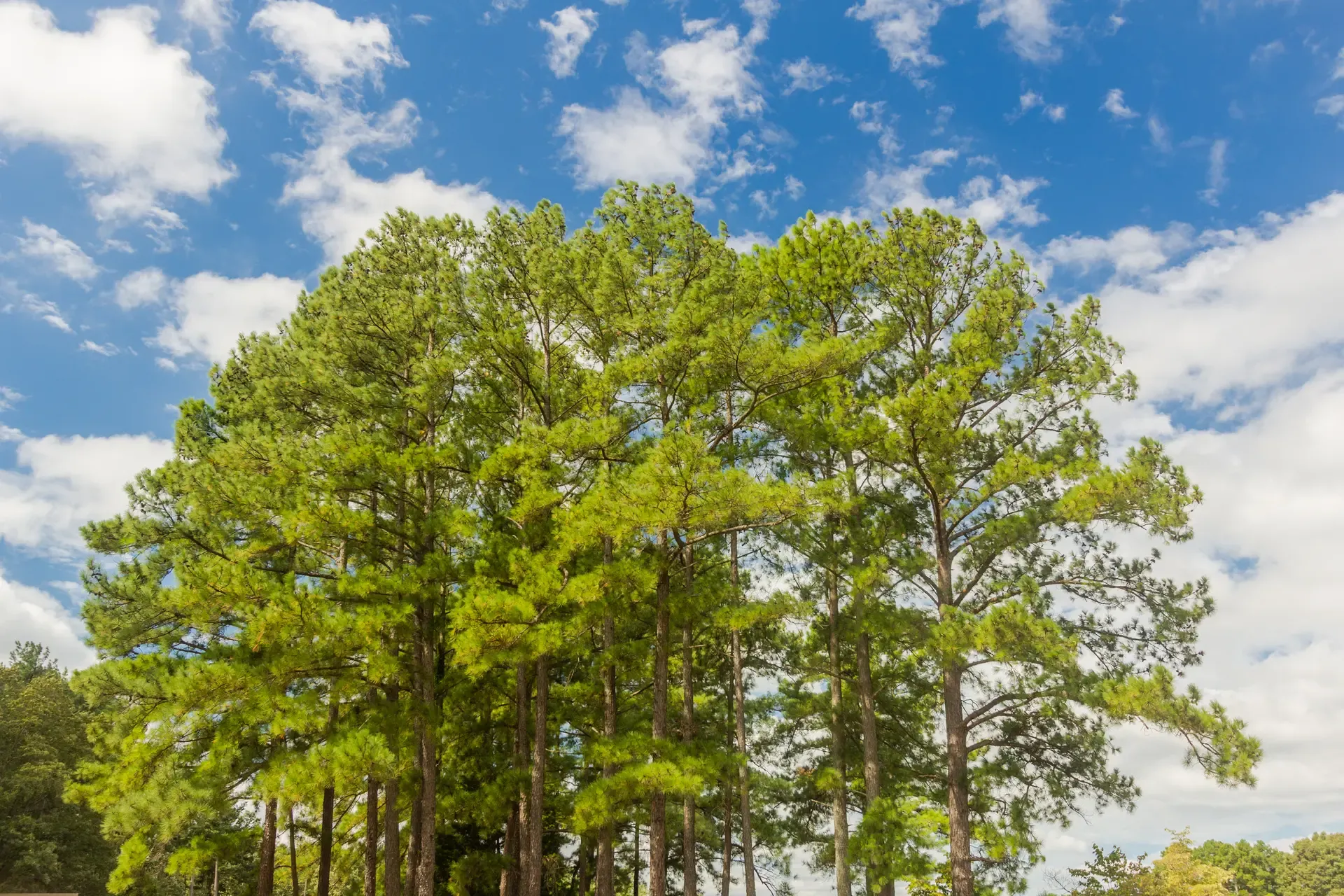A Walk With The Buck Family

For many, maple syrup is a staple to include on the table at breakfast. For the John Buck and his family, maple syrup is a business tied to his healthy woodlands.
When John Buck bought a 70-acre parcel of land in a remote part of Washington, Vermont in 2011, his primary motive was to create a family legacy on the property. “I wanted to have a place for my family to gather together or to come on their own — a place where they can experience Vermont in a rural, forested setting,” Buck said. “I wanted them to always have this place for that.” It didn’t hurt that the property reminded Buck of the landscape he loved growing up in a secluded section of Vermont. “It’s high on a hill, so there are some really wonderful views of the Green Mountains here,” Buck said. “The forest itself is quite diverse. There are a lot of mature trees of various species... with a few open spots that are a grassy kind of vegetation. It has a lot of charm.” As Buck hoped, the property has provided the opportunity for his family to enjoy an array of activities, including hiking, deer hunting, cross-country skiing, snowshoeing, and particularly, sugaring.
Since Buck was a young boy, he's made maple syrup, and he taught his children the process when they were growing up. Back in 2011, Buck thought the property would be perfect for “a casual little operation,” with perhaps 100 taps for making maple syrup. Today, that casual effort has turned into a 2,000-tap, year-round, full-fledged family business.

John Buck (right) with his son, James (left), work closely together on the family’s maple syrup operation.
The Buck Family Organic Maple Farm is run by John, his wife Cathy, his daughter Lauren, his son James, and his daughter-in-law Hayley.
Buck said the family has a portable sawmill on the property and manufactures its own lumber. They built their sugar house and a large woodshed with wood from the property. Currently, they are constructing a cabin which will allow them to stay overnight. This will help as the maple syrup operation requires late nights or early mornings.

The Buck family sugarhouse at dusk
Buck spent 39 years as a wildlife biologist with the state of Vermont, largely working in forest habitat management. He has reveled in the opportunity to bring his professional background to managing his own property.
He says that the diversity of tree species, growing at different levels of maturity, provides a measure of resilience to destructive forces (both native and invasive) and offers a wide range of wildlife habitat on the land. Sustainability is the family's foremost approach, with an emphasis on leaving the land in a better condition than they found it.
“We take pride in harvesting wood sustainably. The forest is very renewable, and we have great respect for that capacity,” Buck said.
“There’s a personal pride in being able to do things ourselves and take responsibility for the way we care for the land here. I have always wanted to convey that to my children, and they’re very conscious of sustainability, renewability, and good long-term stewardship in general — being good custodians of the land,” Buck said. Managing the property has been hard work, but he feels fortunate that he gets to do it. “I have never lost a minute of sleep thinking it was a bad deal,” Buck explains. “I’ve just been so grateful to have this opportunity. It’s a very rewarding experience.”
Related Articles

August 29, 2023
Why Work With a Forester
Forests are complex and the number of things you'll need to consider as a landowner can be overwhelming. Many landowners have foresters put together a comprehensive management plan.

July 1, 2025
Forester Spotlight: Sarah Cawood
We’re excited to highlight Sarah Cawood, a dedicated forester with the Family Forest Carbon Program (FFCP) who brings enthusiasm, experience, and a strong commitment to conservation to her work.

June 3, 2025
Why Wildlife Loves Loblolly—And How These Pines Can Benefit Your Land
A quiet stretch of pine trees can offer more than just scenery—it can provide vital habitat for wildlife across every season. Loblolly pine, the most common native tree species in the Southeast, plays a particularly important role in creating habitat for a wide variety of game and non-game species, from wild turkeys and rabbits to songbirds and squirrels.